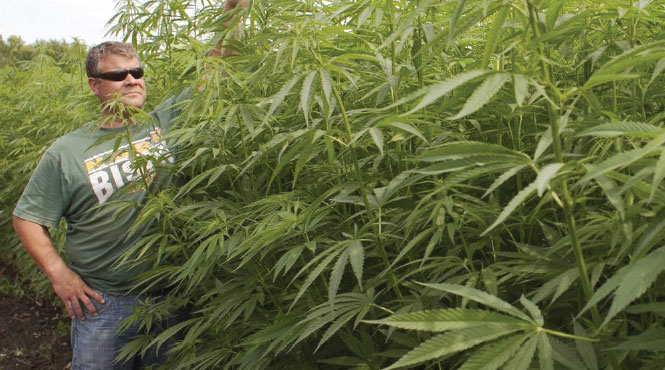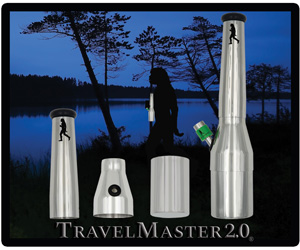Farm Bill Passes

Jan, 2019 by Cannabiz Wholesaler
Hemp is about to become legal as part of the 2018 Farm Bill. It’s a big deal. A close relative of marijuana that can be used to make textiles and other products, hemp has long been classified as a Schedule I drug by the federal government.
“That’s set to change,” reported the Washington Post in mid- December. “President Trump is soon expected to sign a farm bill that includes a section that legalizes the commercial cultivation of hemp nationwide. The bill, years in the making, comes as public support for cannabis legalization has increased over the years, offering a cover of sorts to politicians who see the potential for boosting state tax revenue.” The vote represents a monumental breakthrough for the hemp, cannabis, and CBD industries. To say that industry executives are excited is putting it mildly.
‘WATERSHED MOMENT’
“Opening the door for U.S.-based hemp is very exciting,” says David Goldstein, CEO of Potbotics. “Keeping production local allows for greater transparency, quality control, and testing procedures as well as more clarity on minor cannabinoids that you simply don’t get with imported hemp. I believe doctors and their patients looking to supplement their lives with cannabinoid-based therapy can find greater comfort and reliability in the medicines they’re receiving.” Cortney Smith, CEO, DaVinci Vaporizer, calls this “a landmark decision that not only further unties the stigma of cannabis, but also creates legislation to protect U.S. agricultural dominance.” Bethany Gomez, Director of Research, Brightfield Group, says it is “a watershed moment for CBD in the United States. With hemp and all of its derivatives officially removed from the controlled substances act, CBD moves from a legal gray area into the light. That legal gray area has kept the industry small and fragmented - this shift will allow for CBD to make its way to the shelves of larger scale, mainstream distribution channels and pave the way for the large mainstream consumer packaged goods companies in industries like drinks, beauty, pet, skin care and tobacco to develop CBD products and capitalize on this emerging industry.” Even while operating in a legal gray area with minimal marketing budgets, limited distribution channels and only small brands, CBD “has catapulted to the national stage this year, growing by more than 80% to reach $590 million,” Gomez points out. “Now that the Farm Bill has gone through, we expect the U.S. market for CBD to hit $22 billion by 2022.”
Dylan Summers, Director of Government Affairs and Compliance for Lazarus Naturals, sees the passage as “great news for us as a company and an industry. The future is bright as hemp solidifies itself as a legitimate agricultural product at long last--liberated from the restrictions of the Controlled Substances Act.” Although competition will become more sophisticated and challenges will arise as FDA navigates just how to regulate hemp products and hemp-derived cannabinoids, Summers explains, “our endeavor will remain to pave the way for testing and quality standards throughout the industry. If we reflect and build upon the models we’ve had thus far in the Pacific Northwest, I believe Lazarus Naturals can help solidify the growth of a safe, supportive, and effective community for our health-conscious constituency, service members, veterans, and those in most need on long-term disability and of little means.” “When the Farm Bill passes in its current form, we expect hemp-based product sales (with and without CBD) to grow faster than marijuana-based products in the U.S.,” says Khurram Malik, CEO, Biome Grow. “This has to do with less structural constraints associated with the marketing and distribution in the hemp sector. This is assuming there is no change to federal regulations regarding medical and recreational cannabis over the same time period.” Beyond that, Malik continues, passage “will likely allow U.S. hemp companies to list on senior U.S. stock exchanges, where previously, we have seen some hemp companies limiting their listing to Canadian exchanges.”
‘BACK IN THE FOLD’
“While how long it has taken is disappointing, it is exciting to see hemp back in the fold as a main cash crop opportunity for American farmers,” proclaims Jeffrey M. Zucker, cofounder and President of Green Lion Partners. “Hemp is an environmentally friendly, sustainable resource that is incredibly versatile. In addition to this being a win for farmers, it is a boon for Americans as a whole to receive expanded access to hemp products.”
Alex Wasyl, CEO of Nexien Biopharma, calls the decision “a huge step in a direction that is much needed. Updated legislation and regulations on Hemp and its constituents, primarily CBD and other non-psychoactive, non-THC cannabinoids will lead to many positive developments. Removing hemp, and potentially some of its phyto-cannabinoids themselves, from the controlled substance act, will provide a clearer perspective to those currently on the sidelines of cannabinoid science.” This current progress, says Wasyl, will presumably hasten the timeline for the private sector and academic institutions to further contribute to developing valuable research. “More research will enable targeted therapeutics for additional indications beyond existing cannabinoid pharmaceuticals to be developed and brought to market - most importantly, to patients in need.”





















